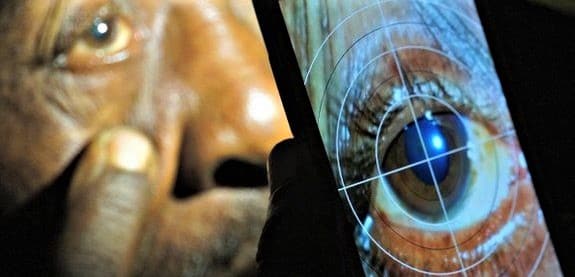Though beginning as a pre-condition for the Kenyan government to secure funding from the United States, an HIV biometrics identification programme has been tested and is scheduled to launch in Kenya.
Iris scans of 8,794 HIV patients were reportedly taken with great success and ease in both rural and urban locations in Kenya.
Suggested Read: To obtain their e-Passports, Kenyans are now required to book online for biometrics
The programme was conducted in association with the US President’s Emergency Plan for AIDS Relief (PEPFAR), the Ministry of Health, Kenyatta National Hospital (KNH) and the University of Washington.
PEPFAR’s leadership stated in a letter to the US Ambassador to Kenya, Kyle McCarter, of their concerns on the lack of transparency in the HIV survey data Kenya produced. This reportedly put pressure on the government to provide a unique HIV patient identification method before the end of the fiscal year.
The condition was necessary to encourage domestic policy changes to ensure measurable progress in the fight against HIV. In particular, PEPFAR wanted Kenya to alleviate concerns that previous data collection methods were inflated to ensure larger funding from the United States.
Previously, attempts to collect data of sex workers and gay people in Kenya were seen as controversial and were fought against by civil society groups. This was done to avoid possible attempts to persecute people in this category.
Legal safeguards against the abuse of the HIV patient data collected were a necessary part of the agreement the US donor had with Kenya.
Thankfully, the recently signed Data Protection Act in Kenya may ensure that safeguards are in place to protect data owners and fine violators.
Hopefully, this will be a win-win for everyone involved.
Image courtesy – BBC News






